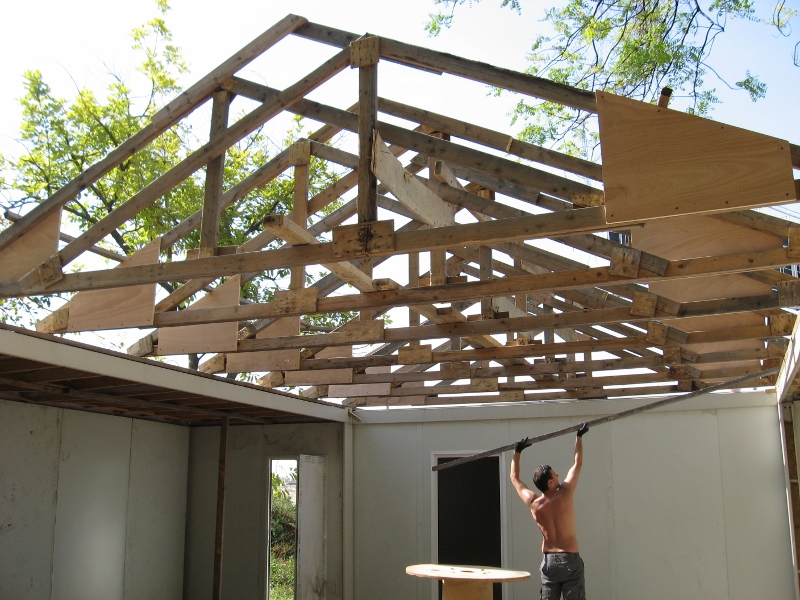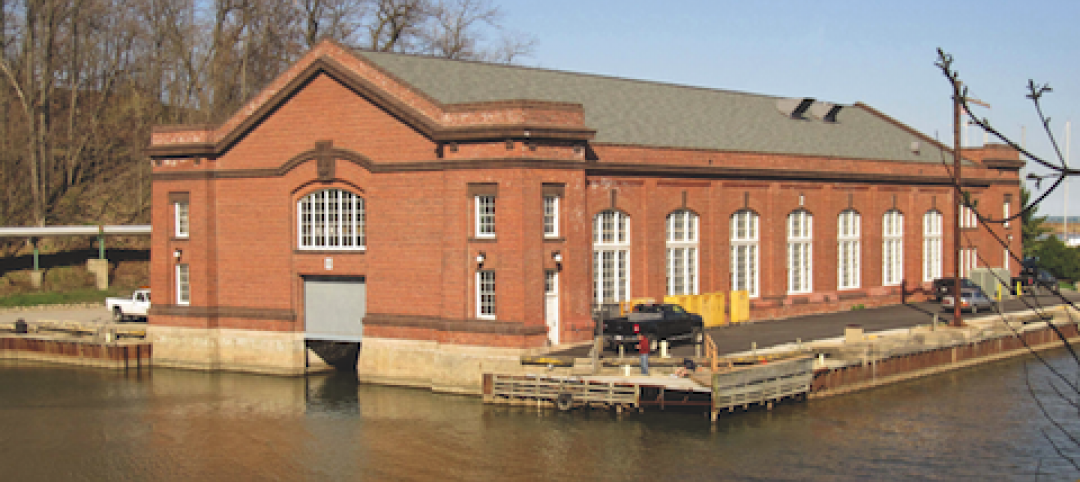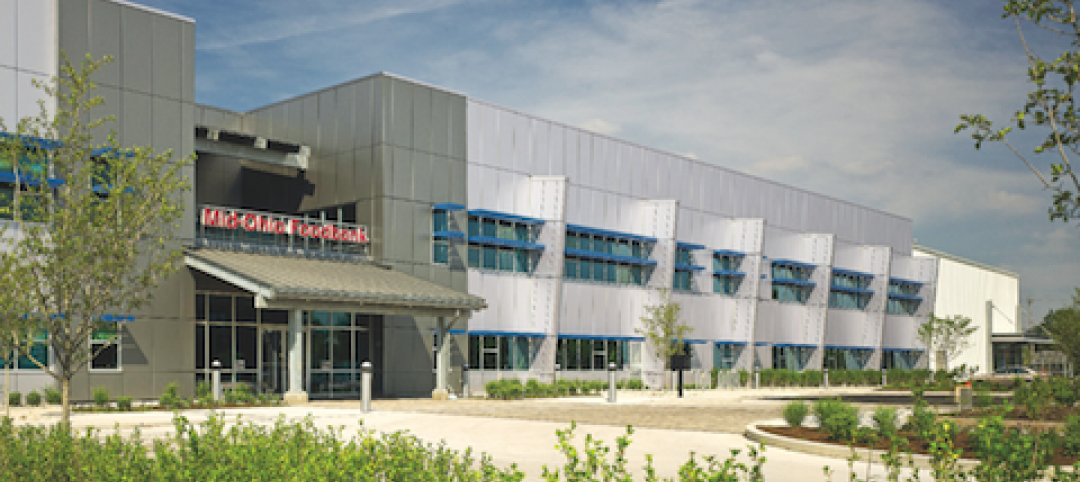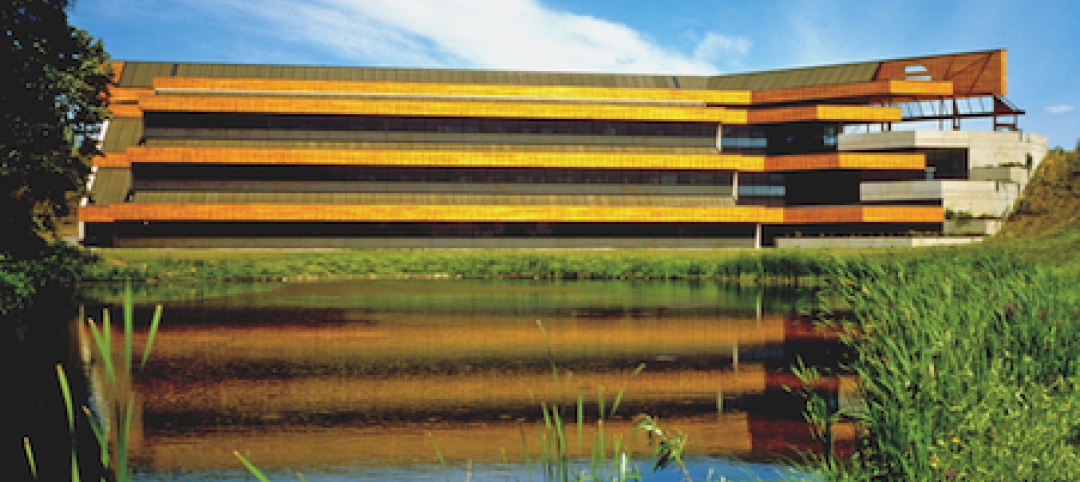The Architects Foundation, along with the American Institute of Architects (AIA) and the Association of Collegiate Schools of Architecture (ACSA), launched a nationwide request for partnership to add three more members to its National Resilience Initiative (NRI). The initiative is a network of resilient design studios that help communities become more resilient to natural disasters and climate change.
Founded in 2013 as a Clinton Global Initiative commitment, the NRI network will gather existing university-based design centers that work planning, facilitation and project implementation within their communities. The NRI’s goal is to pass along resilience design ideas and planning approaches that can be shared with local communities.
Currently, there are three existing NRI studios - Mississippi State (Gulf Coast / Southern Region), The University of Arkansas (Lower Mid-West Region), and the New Jersey Institute of Technology (East Coast Region). The Foundation recently issued its first annual report on what the NRI studios have achieved, and a map of the network and the risks being addressed by each studio can be found here.
In issuing its first request for partnerships, the Foundation searching for three university-led, multi-disciplinary teams to implement the second phase of the NRI. In this phase, the Foundation is looking to find the next three studios for the Mid-Atlantic, Upper Mid-West and Pacific Northwest regions.
“These new studios — along with the three existing NRI studios — will represent the six regional areas of need for resilience planning within the ten federal regions designated as disaster-prone areas by the Department of Housing and Urban Development (HUD) and the Federal Emergency Management Agency (FEMA),” said Architects Foundation Executive Director Sherry-Lea Bloodworth Botop. “These six members will form a strong resilient studio network backbone right where it’s needed most.”
Applications are now being accepted through January 7, 2016. A selection announcement is expected by mid-February. The first annual convening of all six NRI charter members will take place in early May at Architects Foundation headquarters in Washington, D.C.
Related Stories
| Oct 12, 2010
Building 13 Naval Station, Great Lakes, Ill.
27th Annual Reconstruction Awards—Gold Award. Designed by Chicago architect Jarvis Hunt and constructed in 1903, Building 13 is one of 39 structures within the Great Lakes Historic District at Naval Station Great Lakes, Ill.
| Oct 12, 2010
Full Steam Ahead for Sustainable Power Plant
An innovative restoration turns a historic but inoperable coal-burning steam plant into a modern, energy-efficient marvel at Duke University.
| Oct 12, 2010
From ‘Plain Box’ to Community Asset
The Mid-Ohio Foodbank helps provide 55,000 meals a day to the hungry. Who would guess that it was once a nondescript mattress factory?
| Oct 11, 2010
HGA wins 25-Year Award from AIA Minnesota
HGA Architects and Engineers won a 25-Year Award from AIA Minnesota for the Willow Lake Laboratory.
| Oct 11, 2010
MBMA Releases Fire Resistance Design Guide for metal building systems
The Metal Building Manufacturers Association (MBMA) announces the release of the 2010 Fire Resistance Design Guide for Metal Building Systems. The guide provides building owners, architects, engineers, specifiers, fire marshals, building code officials, contractors, product vendors, builders and metal building manufacturers information on how to effectively meet fire resistance requirements of a project with metal building systems.
| Oct 11, 2010
Rhode Island is the first state to adopt IGCC
Rhode Island is the first state to adopt the International Green Construction Code (IGCC). The Rhode Island Green Buildings Act identifies the IGCC as an equivalent standard in compliance with requirements that all public agency major facility projects be designed and constructed as green buildings. The Rules and Regulations to implement the Act take effect in October 2010.
| Oct 8, 2010
Union Bank’S San Diego HQ awarded LEED Gold
Union Bank’s San Diego headquarters building located at 530 B Street has been awarded LEED Gold certification from the Green Building Certification Institute under the standards established by the U.S. Green Building Council. Gold status was awarded to six buildings across the United States in the most recent certification and Union Bank’s San Diego headquarters building is one of only two in California.
| Oct 6, 2010
Windows Keep Green Goals in View
The DOE's National Renewable Energy Laboratory has almost 600 window openings, and yet it's targeting LEED Platinum, net-zero energy use, and 50% improvement over ASHRAE 90.1. How the window ‘problem’ is part of the solution.
| Oct 6, 2010
From grocery store to culinary school
A former West Philadelphia supermarket is moving up the food chain, transitioning from grocery store to the Center for Culinary Enterprise, a business culinary training school.
| Sep 30, 2010
Luxury hotels lead industry in green accommodations
Results from the American Hotel & Lodging Association’s 2010 Lodging Survey showed that luxury and upper-upscale hotels are most likely to feature green amenities and earn green certifications. Results were tallied from 8,800 respondents, for a very respectable 18% response rate. Questions focused on 14 green-related categories, including allergy-free rooms, water-saving programs, energy management systems, recycling programs, green certification, and green renovation.













